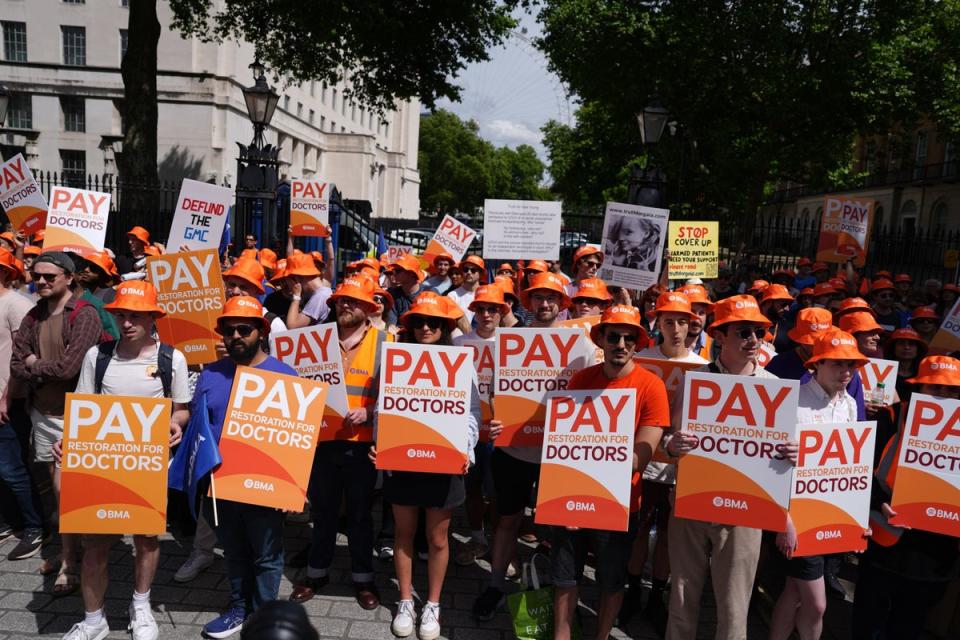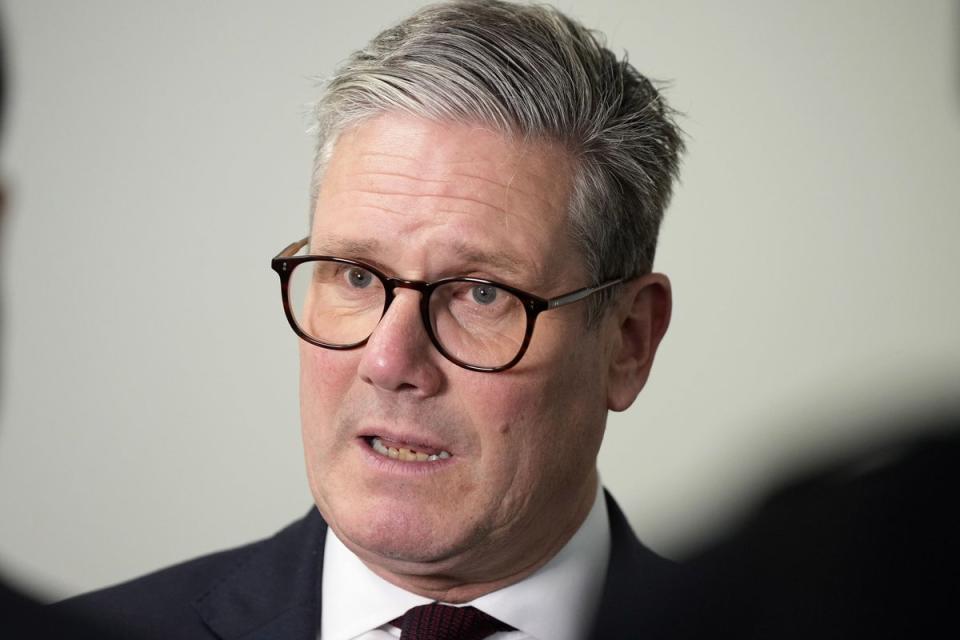Starmer faces union backlash as PM puts mortgages before public sector pay
Sir Keir Starmer is facing an early end to his post-election honeymoon period as union leaders raise threats over public sector pay.
Comments made by the prime minister at the Nato summit in Washington DC appear to confirm that he is prioritising economic stability and bringing mortgages down over meeting demands for wage rises.
With junior doctors threatening more strikes over their demands for a 35 per cent pay rise and other pay review bodies on different sectors due to report shortly, Sir Keir was pushed on whether he is prepared to agree to above-inflation rises.
Health secretary Wes Streeting, who has also warned against a 35 per cent pay rise, is in talks with the doctors as an urgent priority but others could be coming up if pay demands are not met.
But the prime minister is also facing a number of other issues as he flies back to the UK:
Already he has a rebellion among Labour MPs on the two-child benefit cap.
He is set to have to make difficult decisions on releasing prisoners because of an overcrowding crisis.
There are questions over when he will fulfil commitments including increasing defence spending to 2.5 per cent.

When asked if he “will give the unions what they want” he responded: “No.”
He said: “Obviously, there are a number of pay settlements to be gone through on the annual basis. But the finances are in a very poor state, I think that is obvious. And that’s why we’ve been careful in what we said going into the election, and we’ll be careful what we say coming out of it.”
Instead he made it clear that getting spiralling mortgage costs under control by bringing interest rates down through economic stability was a much higher priority.
He said: “Mortgages have gone through the roof because of the instability caused by the last government, in particular Liz Truss but not only Liz Truss.
“That is why we said before the election and we’ve doubled down on it now economic stability is the first step when it comes to growth of our economy. We need that stability in order to ensure that we can bring mortgages down. They are punishing people, I mean people coming off fixed-rate mortgages are almost invariably having to pay hundreds of pounds more per month.”
He went on: “People on even dual incomes into their house can’t afford the mortgage. We need to stabilise the economy, we need to stabilise the economy for a secondary reason and that is to attract investment in and that will only come if there is a stable economic environment. That is the single biggest factor that is preventing investment into our country, there has been a destabilising economic effect and chaotic effect of the last few years.”

But union leaders have expressed their anger amid hopes that a Labour government would bring a new approach.
The leader of Britain’s biggest union Sharon Graham, Unite general secretary, said: “The biggest crisis facing the NHS and other public sector areas is the inability to recruit and retain workers, caused by many years of pay freezes and below inflation pay rises. Experienced staff are leaving the NHS in droves.
“If we don’t sort out the crisis of people, we won’t sort out the crisis in the NHS. New scanners need staff to operate them. Whatever the plan, it will need more money. This is the undeniable fact.”
Daniel Kebede, general secretary of the teachers’ National Education Union, warned: “This is not what we want to hear from the new prime minister. We expect an above inflation teacher pay offer that is fully funded. Failing to provide properly funded pay increases will have severe costs in terms of recruitment, retention and the delivery of education.
“Education is already at breaking point. Another below inflation pay rise will break it.”
A Royal College of Nurses spokesperson said: “The next NHS pay award must be fair and come swiftly. We will consult our members on whether it meets their expectations. Any pay award must begin to turn around the staffing crisis in our health service.”


